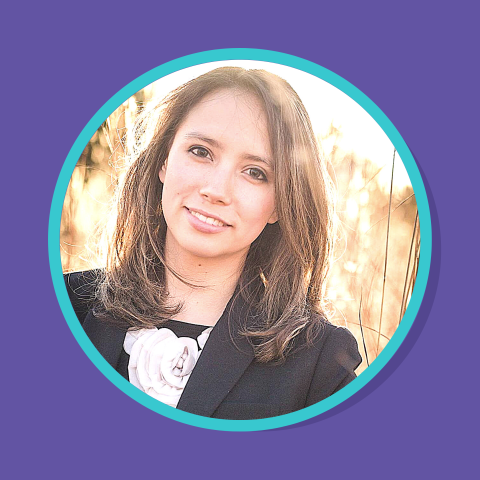
Kylynda Bauer, Ph.D., a postdoctoral fellow in the laboratory of Tim Greten, M.D., Deputy Chief and Senior Investigator in the Thoracic and GI Malignancies Branch.
Kylynda Bauer, Ph.D., is a postdoctoral fellow in the laboratory of Tim Greten, M.D., Deputy Chief and Senior Investigator in the Thoracic and GI Malignancies Branch. She is a scholar in the iCURE program, which focuses on identifying and training talented researchers from various backgrounds. In this Hispanic Heritage Month Q&A, she shares how her cultural heritage has shaped her perspective, the value of connecting with others, and what she appreciates most about the iCURE program.
Can you give us a quick overview of your research background?
I joined CCR as a postdoctoral researcher in November 2020. Previously, in my doctoral studies at the University of British Columbia, I examined how the gut microbiome influences liver function in Brett Finlay’s lab. At CCR, my focus has shifted to immunology and oncology, but I'm still utilizing systems biology approaches to assess the liver tumor microenvironment.
Talk to us about how important mentoring has been to you along your trajectory so far.
I would say that my first mentor was my mother. She immigrated to the US when she was 19 to continue her education in biomedicine and nutritional sciences. She values education and has supported my academic ambitions, and she was the first person to encourage me to apply for a summer research internship.
When I decided to join the CCR, it was important for me to find the right mentor who would support my research interests and career path. I reached out to multiple principal investigators (PIs) within the CCR and joined Dr. Tim Greten’s lab. During the iCURE interview process, I had multiple conversations with Dr. Greten and his trainees in which we discussed expectations in the lab and my career trajectory.
Dr. Greten is an amazing mentor because he's taught me how to be both bold and strategic when addressing high-risk, high-impact projects. I’ve had a very rewarding experience.
Can you tell us a little bit more about how your mom and your cultural background have influenced your decisions on your career journey?
I identify as Hispanic American. My mother comes from Peru and my father is half-Korean, and they are both immigrants. I emphasize the “American” in Hispanic American because America is a blend of many cultures, just like my own background. I think it’s important to recognize that science needs diverse voices to be successful, and you need to have a diversity of thought, backgrounds and interests. My parents have always encouraged this mentality for me.
The Greten lab, like the broader NIH, values diversity. Each researcher has a unique background, from medical training to doctoral studies, clinical training and basic science experience. All of us work to address one problem — liver cancer — but from a multitude of perspectives.
What can you say about your experience in the iCURE program?
As an iCURE fellow, you have this wonderful opportunity to join a leading institute that is multidisciplinary and has a multicultural ethos. It’s a great chance to develop academically and have a strong support team and a network available for my career development.
iCURE not only provides mentorship, but also trains you to become a mentor. In our lab, we also have an iCURE postbaccalaureate fellow, so I have had the opportunity to provide mentorship and guidance for someone else.
What about your experience at CCR?
Working at the NIH and CCR has been such an eye-opening experience. I remember one time I needed a reagent: I sent an email to CCR and within five minutes there were multiple PIs reaching out to me saying “yes, we can provide the reagent, and also, if you want to sit down and chat, we can discuss the project.” People are eager to mentor and collaborate, and that makes this a very exciting place to pursue research!
Do you have any advice that you would give to the next generation of Hispanic students who are thinking about starting a career in science?
I think it's important for me to let Hispanic students know that science is a rewarding and accepting environment. As a Ph.D., student, I was able to give a TED Talk and I was involved in writing a blog, so I’ve been engaged in outreach and communication in different venues. I think this is also how I incorporate my heritage: taking my mother's encouragement for me to pursue science and passing on that encouragement to others.
I would also say: don’t be afraid to reach out to potential PIs or leaders in industry and policy. Many people are excited about training the next generation of scientists. The first step is reaching out and connecting.
Finally, what is it about science that motivates and intrigues you?
You can follow Kylynda on Twitter at @KCBSckope. To learn more about Dr. Tim Greten and his lab, you can follow them at @TimGreten.